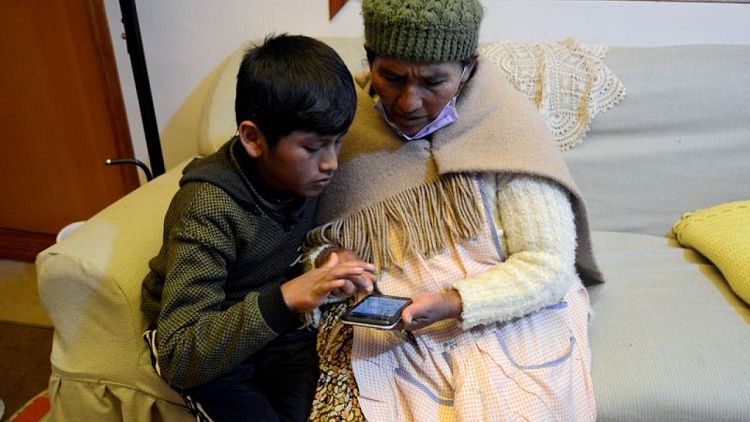EL ALTO, Bolivia - When the outbreak of COVID-19 shut their sons' school, Bolivian street vendors Angela Poma and Lorenzo Gutierrez made big changes to help their boys Willy, 9, and Carlos, 11, adjust to online learning.
The shift online required the family to buy mobile phones and move from a rural area that only had a landline phone to the city of Viacha, 22 km (14 miles) southwest of La Paz, where they could find better internet service.
However, the parents, who are spending up to $2 a day for internet, were in the dark on how to use the new devices.
"I couldn't even turn it on," said Poma. "I had a phone only for calls and that's it."
Filling in that knowledge gap, the Internet Foundation Bolivia has been helping families like the Gutierrez-Pomas by organising classes for parents on how to operate their smartphones and find the best internet packages so they can save money as their children study online.
"Not all moms, dads or tutors are aware of the digital tools and platforms that exist for online learning," said Esther Mamani, who volunteers with the foundation.
Only around 4 in 10 people in the Andean country have internet access, falling to just 3% in poorer rural areas, according to data from Bolivia's telecoms authority.
As Poma goes to the front of the class to receive her certificate for completing the internet course, her classmates clap loudly and later there are smiles as everyone poses for a picture.
Now, the couple just has to contend with the same issues of sharing and technology time limits as other parents.
"The younger one uses the mobile phone all morning and the older one uses it from three, three-thirty. Sometimes I see my children fighting over the mobile phone when the battery starts running low," said Poma.
And, like other parents struggling through virtual-only classes with their kids globally, she questions its effectiveness.
"I wish the face-to-face classes would start soon," she said. "My children don't learn a lot with this virtual education system."
